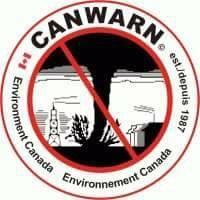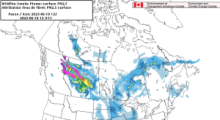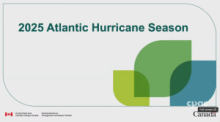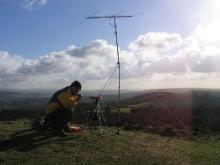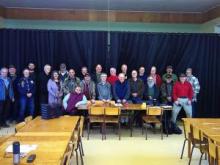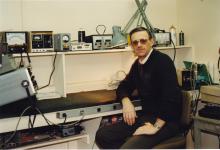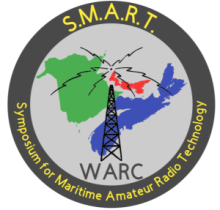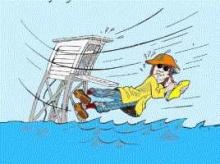CANWARN involves an active group of people that spot and report on severe weather. It was originally formed as a network of weather-trained ham radio operators across Ontario, and has since spread to Alberta, Saskatchewan, Manitoba, Quebec, and into Atlantic Canada. The network now includes a growing team of other formally trained severe-weather spotters, from members of the Canadian Red Cross to government and provincial park staff.
Wildfire smoke predictions
Click here for Environment and Climate Change Canada (ECCC) smoke predictions for next 72 hours (Click the "play" button for animation). Additional maps and modelling can be found at the Air Quality Model Forecast page.
Another resource is the Firesmoke Canada page.
Outlook for 2025 hurricane season (bilingual video)
With June 1 being the official start of the hurricane season, The Canadian Hurricane Centre (CHC) provided a media update on the upcoming season. Included in the May 23 presentation is meteorologist Bob Robichaud (VE1MBR) with Enviroment and Climate Change Canada at the CHC. This is a link to the video presentation in both official languages (run time about 45 minutes).
Results from simplex event from Boyd Mountain
Here are the log results from the May 17 Boyd Mountain Simplex Net from VE9HOA - Hills on the Air. Thanks to Glen VE9GK and Gary VE9GSB for organizing this event!
IRG Annual General Meeting held in Doaktown
The International Repeater Group held its annual general meeting in Doaktown on Sunday, April 27. In addition to discussing repeater updates, regular nets and other items, election was held for officers.
Weather Net ends 2024-2025 season
The IRG Weather Net held its last daily net for the 2021-2022 season on Friday, April 11. Since November 4, observers contributed an estimated 23,000 items of data to help Environment Canada, N.B. River Watch, and other agencies in their forecasting.
Murry Brown - VE9MB (SK)
Friends of Murry Brown (VE9MB) are saddened by his recent passing on March 2, 2025.
Murry was instrumental in his role at Radio Branch of the N.B. Department of Transportation (now RadComm at NB-DTI) in working with the IRG to establish the linked radio system now used by radio amateurs.
SMART date set for May 10, 2025
The annual SMART (Symposium for Maritime Amateur Radio Technology) is scheduled for Saturday May 10th, 2025 at the Dr. Carson & Marion Murray Community Centre in Springhill NS.
There will be 10 classes beginning at 9am. Lunch will be served from 12:30pm to 1:30pm. Door prizes will be awarded to those who register before the event. Grand Prizes and 50/50 tickets will be sold throughout the day and all the prizes will take place after the last classes are out at 4pm.
RAC Basic and Advanced Courses: Winter 2025
IRG Weather Net to start for season on November 4
Hey, weather watchers! Dust off those snow boards, metre sticks and thermometers, because the IRG Weather Net will start for the 2024-2025 season on Monday, November 4, 2024 and run every morning at 7:30 a.m. Atlantic Time. Net control will be shared by Rick VE9MTB and Scott VE1CSA. They will gather your local observations and send them off to Environment and Climate Change Canada. ECCC uses the reports to fine tune their predictions and issue alerts in severe weather conditions. The reports are also used by other agencies such as River Watch and news media.

